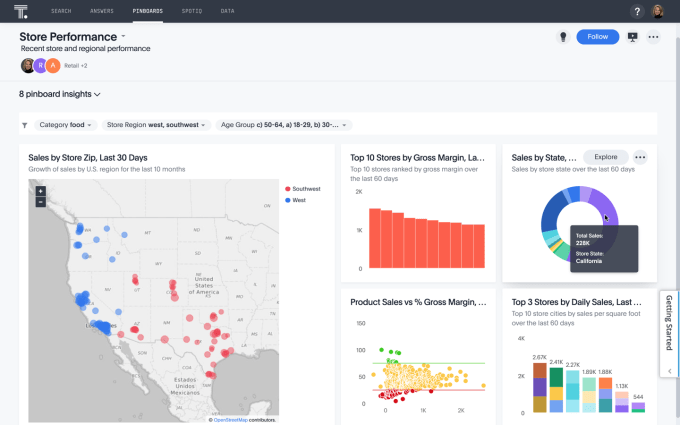ThoughtSpot, an AI-powered analytics platform, today announced that it’s entered into a definitive agreement to acquire Mode Analytics, a business intelligence startup, for $200 million in cash and stock.
The deal, ThoughtSpot CEO Sudheesh Nair says, will bolster ThoughtSpot’s generative AI capabilities while doubling the company’s customer base and growing its annual recurring revenue to more than $150 million.
“With this acquisition, we’re giving both data teams and business users the tools they need to efficiently and quickly turn data into insights and those insights into actions,” Nair said in a press release issued this morning.
Mode, which TechCrunch last covered in August 2020, was co-founded by Derek Steer, Benn Stancil and Josh Ferguson in 2013. All three previously worked at Yammer (they were early employees and stayed on after the Microsoft acquisition), where they were a part of a larger team building custom data analytics tools for the Yammer platform.
Steer told my colleague Ingrid Lunden that the impetus for Mode came out of gaps in the market that the three had found through years of experience at other companies. Specifically, they saw an opportunity to build a product that could provide business intelligence and big data analytics tools to help data scientists improve their employers’ decision making by tapping the information already in their apps and other systems.
Mode indeed managed to find found a foothold in the vast and growing business intelligence market (worth an estimated $27.11 billion in 2022, according to Fortune), raising $81 million in venture capital prior to the ThoughtSpot acquisition from investors including H.I.G. Growth Partners, Valor Equity Partners and Rev.
“At Mode, we’ve always focused on helping data analysts, and worked hard to remove the frustrations that interfered with their day-to-day workflows,” Stancil, who serves as Mode’s CTO, said in a canned statement via email. “By providing data teams with an integrated, code-first experience, we’ve enabled our customers to move far more quickly and find much more value in their data than they previously could.”
ThoughtSpot acquires Mode Analytics, a BI platform, for $200M in cash and stock by Kyle Wiggers originally published on TechCrunch


